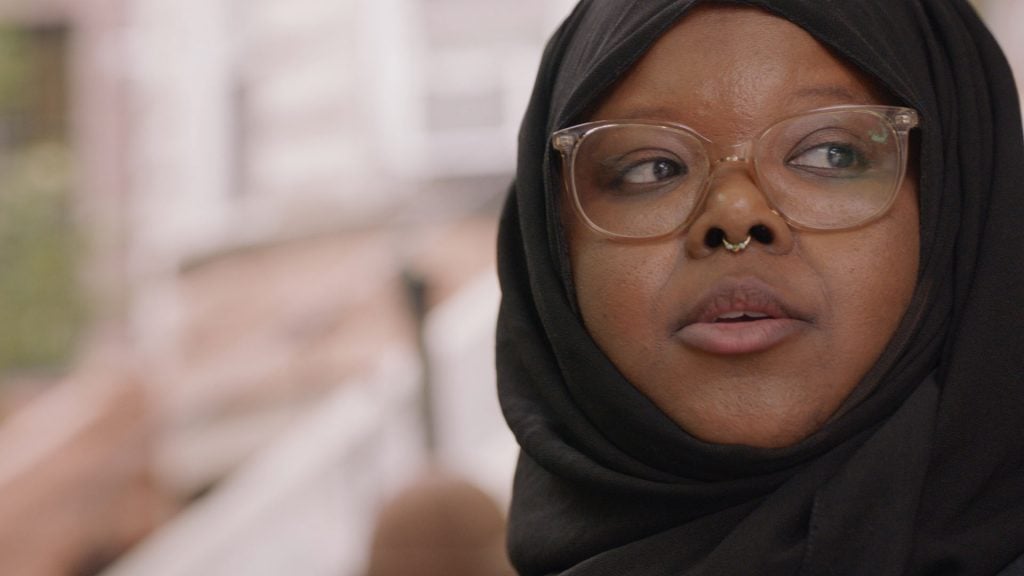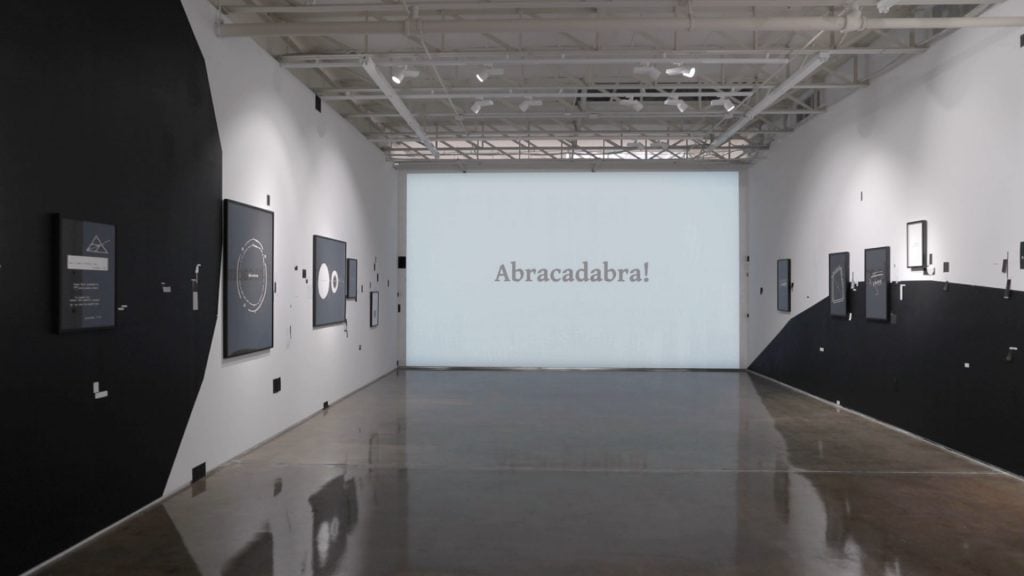Art World
‘Come Think With Me’: Watch Kameela Janan Rasheed Explain How She Reworks Found Text Into Destabilizing Works of Visual Art
As part of a collaboration with Art21, hear news-making artists describe their inspirations in their own words.

As part of a collaboration with Art21, hear news-making artists describe their inspirations in their own words.

Caroline Goldstein

In the early 1980s, artist Kameelah Janan Rasheed‘s father began the undertaking of converting to Islam, poring over religious texts, taking meticulous notes, annotating, reading, and re-reading.
That immersive style of learning and understanding was formative to Rasheed. It is reflected in how she built her art practice, which at its core is focused on language and narrative. Through reading, writing, archival research, and reflection, the artist literally cuts up sentences, breaking them down into words, then letters and symbols, and then rearranging them to create new stories and ways of understanding.
Now, the Brooklyn-based artist uses her method of reworking texts to create installations of wall collages, billboards, and films, and beginning on October 30th, her work will go on view at the New Orleans African American Museum as part of Prospect.5 New Orleans. In an exclusive short film and interview with Art21 as part of the New York Close Up series, Rasheed shows viewers inside her apartment-cum-studio, where she is surrounded by walls of books and other texts.
Describing her father’s laborious methods of learning, she explains, “I thought this was so lovely because I was thinking about this idea of talking back to a text.” That is how Rasheed wants viewers to approach her work too: “it’s really an invitation: come think with me.”
In one of her public installations, Rasheed created a series of billboards around Bristol, U.K., painted in caution-tape yellow with bold black texts on the subject “How to Suffer Politely (And Other Etiquettes)” that riffed on antiquated manuals for young ladies and gentleman. The work was in response to the Black Lives Matter movement, skewering the idea that there was a “right” way to suffer or grieve, either in public or private.

Production still from the Art21 “New York Close Up” film, “Kameelah Janan Rasheed: The Edge of Legibility.” © Art21, Inc. 2021.
Other Rasheen works are more akin to conceptual art, using text as image to create interesting patterns and shapes. “[It’s] sort of inviting people to go slow instead of trying to rush to understanding,” the artist tells Art21. “If you read a sentence that immediately doesn’t make sense, you have two options, right? You can ignore the sentence and move on, or you can spend a bit of time unpacking it.”
Watch the video, which originally appeared as part of Art21’s New York Close Up series, below. Kameelah’s installations at “Yesterday we said tomorrow” Prospect.5 New Orleans are on view from October 30th through January 23, 2022.
This is an installment of “Art on Video,” a collaboration between Artnet News and Art21 that brings you clips of newsmaking artists. A new series of the nonprofit Art21’s flagship series Art in the Twenty-First Century is available now on PBS. Catch all episodes of other series, like New York Close Up and Extended Play, and learn about the organization’s educational programs at Art21.org.